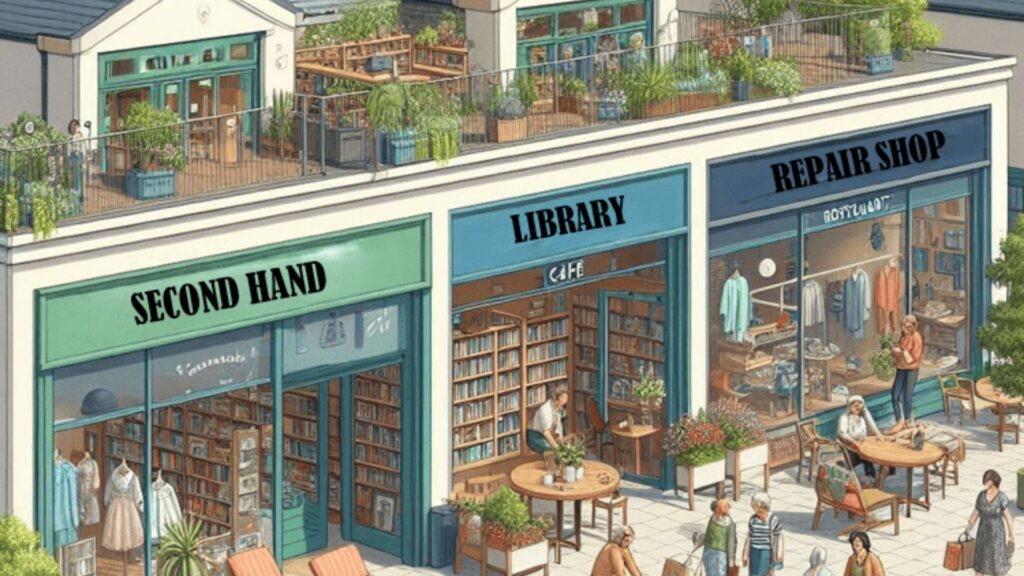Change agents from different countries collectively identified key challenges they would like to see resolved in the future, such as:
- How to make reuse, sharing, and repair the norm, moving away from consumption-based and individualistic lifestyles?
- How to make sustainable choices more accessible in everyday life?
- How to integrate more hands-on or practical skills development into the education system?
- How to bring small-scale local food producers to the forefront of large retail networks and corporations?
What does a future vision look like where sustainable living is possible thanks to the collaboration between society, the private sector, and individuals, and is supported by changes in the education system, regulations, and urban planning?
People are aware of where their food and products come from, and information about how their individual choices impact the world is easily accessible and trustworthy.
A mindset focused on sharing and repair practices is the norm. Paid work is meaningful, and volunteer work is valued.
Food is locally produced. Eating is a quality time spent with family and other community members.
In the vision for a desired sustainable future, consumption is focused on meeting people’s basic needs. People’s mindset has shifted, and they prioritize reusing items rather than focusing on purchasing new products. The overall amount of waste has decreased due to reduced consumption and a lowered need for production. Sharing, swapping, and renting have become more popular than private ownership. Circular shopping centers exist where high-quality second-hand items can be found, repair services are offered, and spaces for social gatherings, cafés, and coworking or co-creation areas are available.
Practical work skills and community-building are closely integrated into the education system and lifelong learning to develop essential skills within society. Sustainable and reliable food production and distribution methods are based on more diverse, decentralized, and flexible solutions. Solutions such as community-supported agriculture, food collectives, cooperatives, and associations are popular.
Value is not measured solely in money but also in time, cooperation, and sharing. The time banking model is utilized, meaning that one hour spent sharing your skills or helping someone (e.g., with gardening or taking a walk with someone) earns you one hour of credit, which you can use to receive help or support in an area where you need it.
We invite you to explore the vision for sustainable living in the Baltic Sea region.
Recommendations for municipalities and decision-makers
In addition to jointly developing the vision, the change-makers also created recommendations for municipalities:
First, financial and other types of support are needed to encourage ideas and initiatives from civil society representatives that drive change. Often, a small amount of seed funding can have a significant social impact. Support should be easily accessible, such as through public-partnerships, small start-up grants, and participatory budgeting, prioritizing environmental and social sustainability. Other forms of support include providing free or low-cost spaces for community-building and sharing activities, as well as legal advice, tax incentives, and assistance in implementing ideas.
Second, regulatory changes are necessary to promote the effective use of existing buildings and to foster the development of a circular, sharing, and repair economy. Public procurement should prioritize circular, local, and organic products.
Third, local decision-makers should ensure a transparent decision-making process so that civil society representatives can also participate by offering their knowledge, suggestions, and opinions. It is essential to communicate clearly with everyone. Decisions should be based on scientifically proven data and reliable long-term impact assessments on nature.


